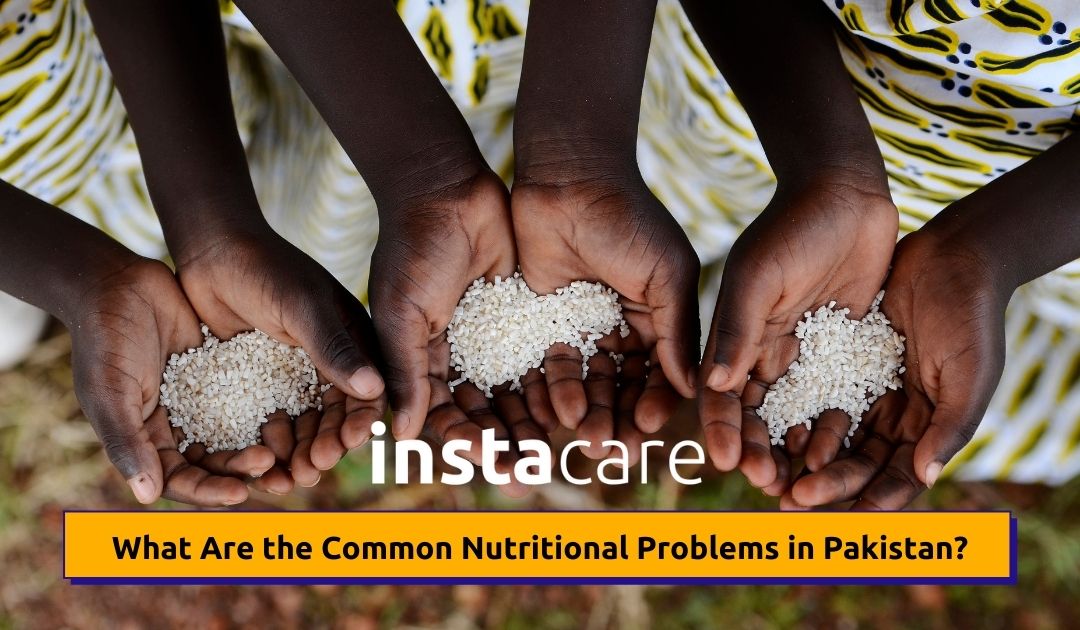Malnutrition Prevalence in Pakistan
A 3-year-old girl named Fatima lives in the slums of Karachi. She plays with her friends but feels tired soon. Her mother got her vaccinated through a non-government organization. But, she is prone to catching infections. After one and a half months, she suffers from it. Sometimes it is a respiratory infection, the other time it is a gastrointestinal one, and so on. Since her parents were bothered about her condition, they took her to the doctor for a check-up. All her vital parameters were alright, but Fatima's height and weight were among the major concerns for the doctors. Her height measured 80cm and her weight was 10kg. The question is how height and weight can be a factor for recurrent infections? The healthcare providers then finally reached the diagnosis of malnutrition-an imbalance in dietary intake in the diet of a person that can result in stunted growth, low weight, and low height.
According to experts, malnutrition makes a child prone to catching an infection, and due to it, she cannot gain weight. It is a vicious cycle that keeps on moving, eventually making it difficult for the child to gain weight. Pakistan has been facing the problem of malnutrition for more than four decades. It is a problem that needs to be addressed as soon as possible. The classic example of malnutrition in Pakistan exists in Tharparkar, a region in Sindh, where 84 children died on November 2019. According to an estimate, 8 out of 10 children do not get the right type and right amount of food to eat.
What are the Common Nutritional Deficiencies in People of Pakistan?
According to WHO, in Pakistan, 50% of children under five years of age have stunted growth. 40% of children are underweight, and 9% of them are wasted. There are common micronutrients and micronutrient deficiencies that exist among the population of Pakistan. Some of them can be discussed as follows:
Kwashiorkor
Kwashiorkor syndrome usually exists in children one to three years of age. In this condition, severe protein deficiency occurs that results in muscle wasting and recurrent infections. However, eating a protein-rich diet for two to three weeks may help in reversing the condition.
Vitamin A Deficiency
54% of people of Pakistan suffer from vitamin A deficiency. Since Vitamin A is necessary for normal growth and vision, its deficiency may result in growth problems and vision disturbances. Incorporating foods like fish, butter, egg yolk, milk, green leafy vegetables, and yellow vegetables may help in preventing the condition.
Vitamin D Deficiency
40% population of Pakistan suffer from vitamin D deficiency. It can affect the bones and calcium absorption as well. For getting rid of it, sit under sunlight in the morning and drink vitamin D fortified milk. It is never too late to incorporate the right habits into your routine. Go out for a walk when you wake up in the morning.
Scurvy
Scurvy is a vitamin C deficiency. It can be prevented by eating a diet that contains plenty of vegetables and fruits like mangoes, oranges, and strawberries.
Anemia
61% of children of Pakistan have iron deficiency anemia due to which their growth and functioning are affected. For its prevention, you must eat green leafy vegetables, lentils along with lemon and red meat.
What are the Causes of Nutritional Deficiencies in Pakistan?
Poverty
Pakistan is a country where 55 million people live below the poverty line. People do not get enough food to eat that can help in the proper development of their bodies.
Unawareness
People of Pakistan do not get awareness sessions regarding living a healthy lifestyle, and healthy eating. Many of them do not know how eating can impact their life.
Maternal Undernourishment
During pregnancy, women in Pakistan do not have enough food to eat that can meet their needs as well as the need for their baby. Therefore, it results in low birth weight that makes it harder for the baby to gain weight in future.
Loss of Food Stock
Food stock that is lost under natural calamities is also a cause of malnutrition among the population. There is not enough production of food to meet the needs of all the people.
How Can Pakistan Get Rid Of Malnutrition?
To get rid of malnutrition, the government of Pakistan will have to play its role in the first place. They must ensure that they use the right fertilizers that can make enough production of crops. Moreover, the government should also make sure that everyone gets enough food. Special attention must be given to daily wagers. Family planning and reducing the size of a family will enable people to get enough food.
Conclusion
Malnutrition can lead to serious infections that can become life-threatening for children especially. People living in Pakistan must also ensure that poor people around them get enough food to eat. Ration drives and food drives may help in solving the problem. After the government, you can also take the responsibility to feed someone, even if it is one person. That can also make a difference. If you want to consult about your child's health with a pediatrician, you can do that through InstaCare.

